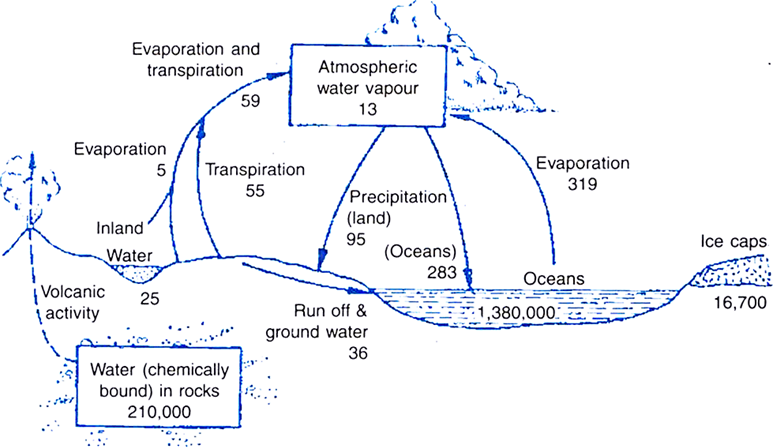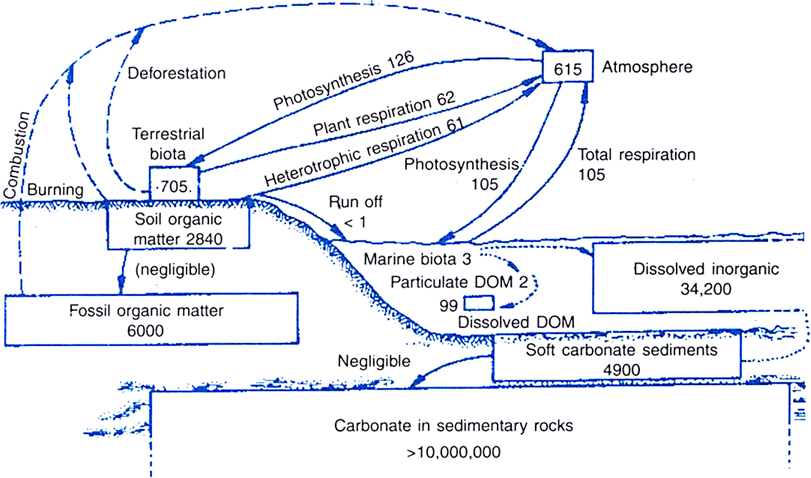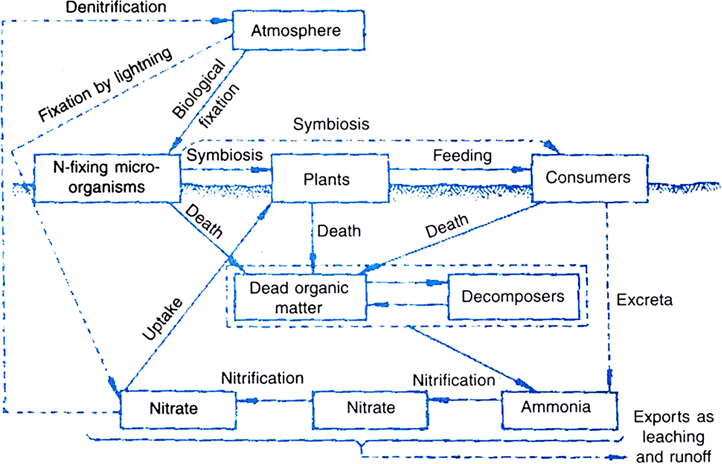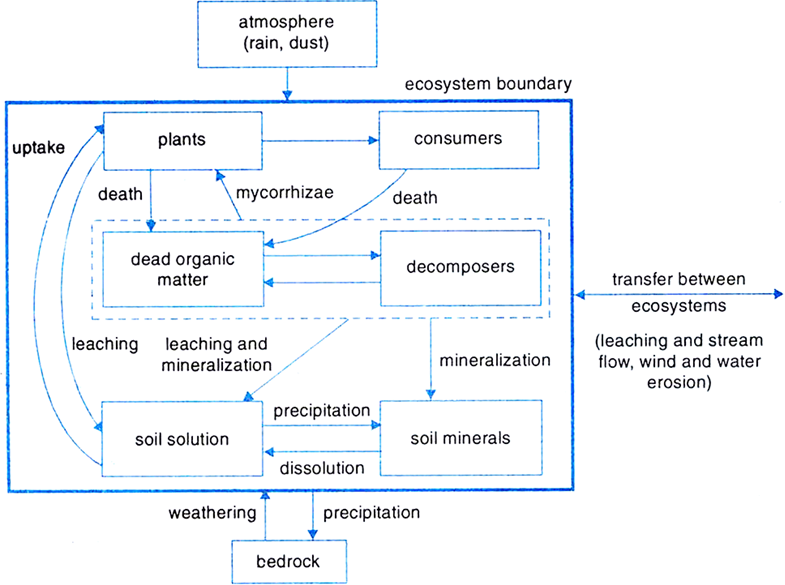What are biogeochemical cycles? Explain a few of them with the help of line diagrams.
Different materials (such as carbon, water, nitrogen and minerals) are cycled in the environment in separate cycles called biogeochemical cycles. Some of these are illustrated below:
(a) Water cycle (Hydrological cycle)
Fig. Global hydrological cycle
(b) Global carbon cycle
Fig. Global carbon cycle
(c) Nitrogen cycle
Fig. Components of the nitrogen cycle in a terrestrial ecosystem
(d) Mineral cycle
Fig. Generalised scheme of mineral cycles in terrestrial ecosystem
|
Food chain |
Food web |
|
1. The series or organisms taking part at various biotic levels form a food chain. |
1. A network of food chains with intercrosses and linkages is called the food web. |
|
2. Trophic level of each organism is fixed in a particular food chain. Each organism in one trophic level receives food from one group of organisms. |
2. In a food web, several food chains are interconnected. So, each organism in one trophic level receives its food from more than one group of organisms. |
State two differences between a consumer and a producer.
What happens when an organism dies?
